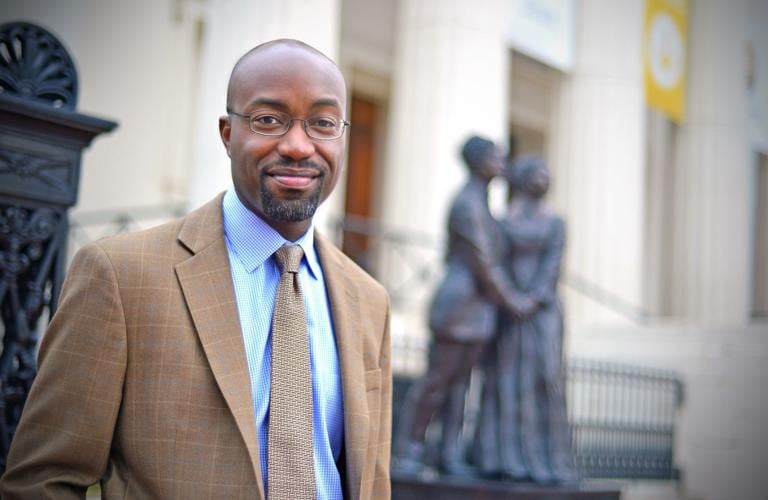St. Louis needs to coordinate a fair and efficient way to keep families housed during the post-pandemic economic fallout. Fortunately, we know what to do – a robust homelessness prevention system stabilized thousands of St. Louis families during the Great Recession. We must quickly move to establish clear processes for distributing CARES Act funds to families who need them most.
Homelessness is a public health crisis facing St. Louis. More than 75,000 households experience severe housing burden, paying more than 50% of income to keep a roof. Public schools in the City of St. Louis alone identify 5,500 homeless students, the majority of whom stay temporarily with relatives and friends because they cannot afford other accommodations. Homeless services in St. Louis City and County provide nearly 700 year-round shelter beds, plus 3,500 transitional and permanent housing placements. Shelter and other beds remain full and fail to accommodate all who seek shelter.
The COVID-19 pandemic overwhelms burdened regional resources to homelessness. Data from United Way 2-1-1 tells the story. In the St. Louis metro area, the social services hotline fielded 7,700 calls for housing and shelter from March through April 2020 – a 50% increase compared with the same period in 2019. Requests for rental assistance tripled, while shelter requests more than quadrupled.
Things will get a lot worse this summer. The CARES Act imposes a 120-day moratorium on evictions and foreclosures that will expire July 25. During the moratorium, courts cannot force a removal from homes for nonpayment, and landlords are prohibited from imposing late payment penalties. The policy provides much-needed immediate relief for millions of households across the nation; yet, protections fall short of relieving rent obligations that accumulate during the post-pandemic fallout.
An already housing-burdened family that stopped paying rent after losing work in March immediately owes for April, May, June, and July. Only if families miraculously secure better-paying employment – during a recession – will they be able to make rent. Our projections based on the best available data suggest the region should expect a sharp rise in housing insecurity and homelessness for the next 12 months – peaking at 3,000 new households per month – that will slowly decline over the next 36 months.
Eviction courts will be slammed. Landlords must continue making payments to mortgage lenders that, in turn, need to pay their investors. Investors include those lucky enough to have a retirement fund or own stock and, thus, the entire economy depends on the mortgage payments. We know from brief pauses in evictions between Christmas and New Years that landlords flood courts with filings on January 2. The same will happen Monday, July 27 – assuming the economy doesn’t collapse in the meantime.
An immediate policy solution exists, born from hardship and battle-tested in St. Louis and communities around the world. The American Recovery Act of 2009 made significant investments to ease the burden of failing housing and job markets. St. Louis city and county partnered on an innovative design that coordinated requests and responses to homelessness prevention through a centralized network of community-based agencies.
Families called a single hotline that assessed needs and made immediate connections to experienced affordable housing agencies. Families received tailored supports that commonly included short-term rental and mortgage assistance, landlord mediation and legal services, deposits and utility arrears, and considerable housing advice.
The data show a 30% reduction in the likelihood of homelessness over two years for households receiving prevention services. Moreover, homelessness prevention worked best for households at greater risk for housing discrimination: African Americans, families with children under 18, youth aged 18-24 years, and households living with a disability or chronic condition. Results suggest the program addressed disparities while saving taxpayers millions in shelter costs alone.
We need to reinvest in a coordinated homelessness prevention system. It provides a smart and equitable investment. We dismantled homelessness prevention when the stimulus money ran out and HUD priorities shifted toward serving the most vulnerable. Now, we need to think creatively about pooling regional resources for a rapid and robust homelessness prevention system. We did it in the past, and we can do it again.
Patrick J. Fowler, Ph.D., serves as an associate professor in the Brown School and the Division of Computational and Data Sciences at Washington University in St. Louis.
Jason Q. Purnell, PhD, MPH, is an associate professor in the Brown School and directs Health Equity Works at Washington University and is leading the COVID-19 Regional Response Team.




















(0) comments
Welcome to the discussion.
Log In
Keep it Clean. Please avoid obscene, vulgar, lewd, racist or sexually-oriented language.
PLEASE TURN OFF YOUR CAPS LOCK.
Don't Threaten. Threats of harming another person will not be tolerated.
Be Truthful. Don't knowingly lie about anyone or anything.
Be Nice. No racism, sexism or any sort of -ism that is degrading to another person.
Be Proactive. Use the 'Report' link on each comment to let us know of abusive posts.
Share with Us. We'd love to hear eyewitness accounts, the history behind an article.